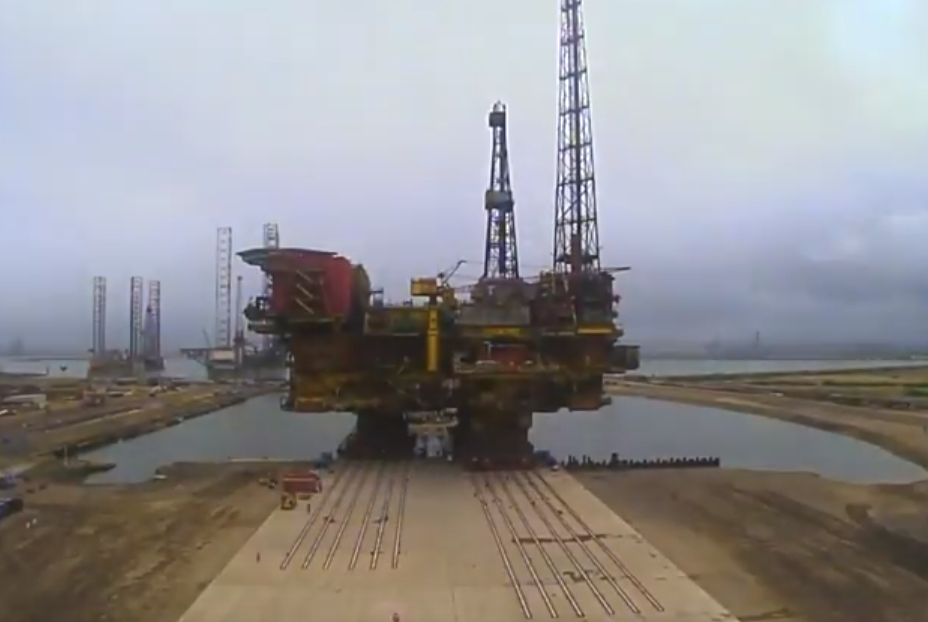
Decommissioning is not the dark cloud over the UK oil and gas industry it has sometimes been portrayed to be. While it does present significant and inevitable challenges, none of these are insurmountable and if tackled in the right way there is a huge opportunity to drive further value from the UK Continental Shelf (UKCS) whilst also maximising economic recovery provided. However, this will require detailed and co-ordinated decommissioning strategies to be implemented across the industry.
It has not been unusual for operators to push decommissioning to one side for consideration at a later date – an understandable reaction given that decommissioning UK North Sea assets is a relatively new challenge, with few benchmarks and no tried and tested approach.
But with the number of fields and assets nearing the end of their economic life rising, making maximising economic recovery and capital expenditure increasingly difficult, continued hesitation is not an option. While nobody appears to want to go first, ultimately, in a race to be second nobody wins. Breaking the decommissioning stagnation has the potential to drive long term economic viability of the UKCS and rejuvenate a competitive market.
A central element to this will be building greater confidence in decommissioning. The introduction of emerging technologies, access to an existing skilled workforce and expert knowledge, as well as a growing understanding of the financial aspects will help stimulate much needed confidence in decommissioning industry-wide.
The industry is working hard to map the best route into the field of decommissioning. Many oil companies are focused on the practicalities of decommissioning with technical delivery at the forefront of their plans. This is of course incredibly important but there is more to it than that. Protecting and potentially creating shareholder value is fundamentally a board-level issue.
Industry leaders need to resist the urge to approach decommissioning with an execution mindset; to develop their strategic thinking as to how decommissioning offers value to their business. While ‘value’ may include things like safe and clear discharge of liabilities, it should also include broader strategic consideration, such as whether to own, outsource or sell decommissioning activity. It may also be appropriate for organisations to redefine their business model to embrace decommissioning as a new/core activity, and to reconsider how to measure success.
The strategic planning process must address a diverse range of perspectives including: reservoir, operations, health and safety, human resources, legal, finance and tax, planning, and external relations. Establishing joint venture alignment from the outset is equally important.
North Sea businesses that are now less material to the majors still offer real growth opportunities for other, smaller players. Greater clarity and assurances around decommissioning liability is one way to support more effective, and cost efficient decommissioning or stimulate deals and strive for maximum economic recovery.
In order to achieve a change of ownership of assets and/or the decommissioning activity, more innovative deal structures are important to manage risk and drive value, while encompassing new commercial models that offer incentives for collaboration.
The recent increase in deals backed by private equity is bringing welcome investment. This has been helped by confidence from stability in the oil price, the reduction in operating costs and greater consensus on the outlook for the future. It is hoped that this new investment will stimulate wider industry activity in exploration and development.
As assets move into the right hands we will start to see the emergence of a new industry, focusing on decommissioning with an initial focus on the North Sea but, if done right, has the potential to position the UK is the global leader. This would help support the development of a strong, efficient supply chain which could deliver significant cost efficiencies. Ultimately, this would free up capital for new investment and further innovation to deliver maximum economic recovery.
The decommissioning debate has come a long way and a shift towards a more positive, strategic view of it is taking shape. Decommissioning must be approached carefully but a comprehensive, all-encompassing strategy is essential. This must be underpinned by greater, industry-wide confidence in the strategic potential of decommissioning.
The UK will lead the way on decommissioning and the world is watching.
Jon Clark is EY’s EMEIA Leader of Oil and Gas Transaction Advisory Services. EY is this week’s Energy Voice Guest Editor.
Recommended for you
